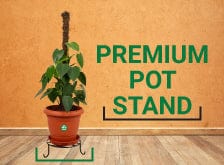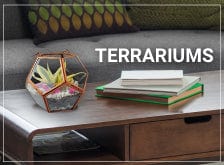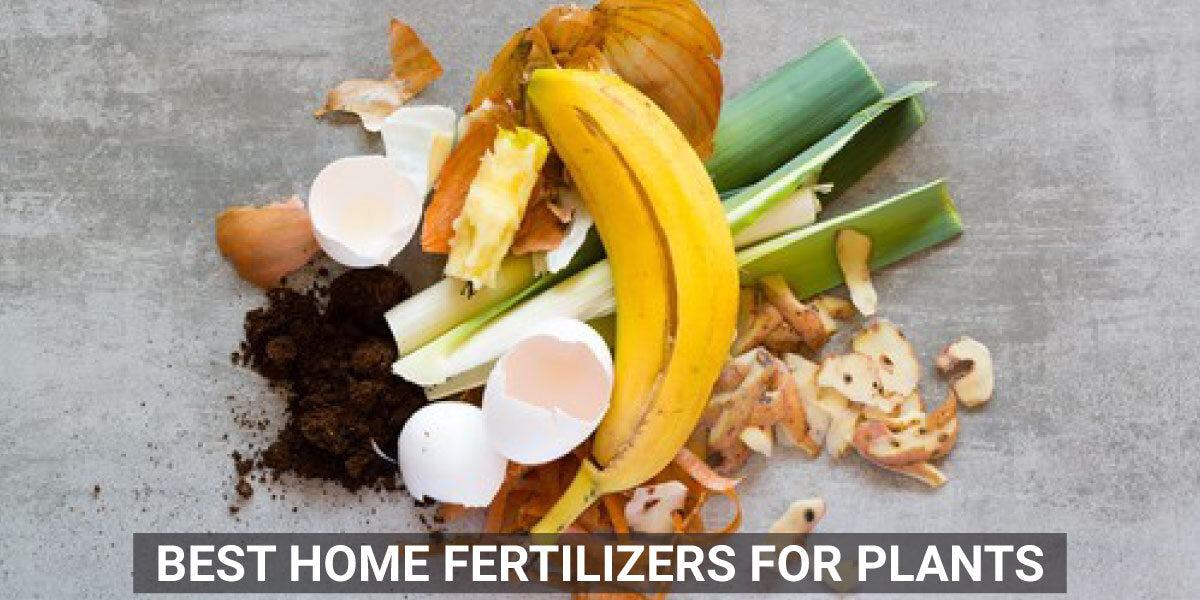How to Grow
Best Homemade Plant Fertilizers for Your Plants
Organic farming is a boon to mankind. It is one of the ways to save our planet from chemicals. There are many natural, chemical-free fertilizers that you can use in your garden to enrich your soil.
Here are six natural homemade fertilizers that can be prepared by yourself at your home. And can utilize them to fertilize your plants.

1. Coffee grounds

- Nutrient status: Coffee grounds are rich in N, Ca, K, Fe, P, Mg
- Coffee grounds absorb heavy metals present in the soil.
- Attract worms to the soil, and improve soil structure.
- Beneficial plants: Used coffee grounds can be applied to all kinds of plants.
- How to use: After use of coffee grounds, rinse it with water to remove sugar content, if it contains sugar. Then simply sprinkle over the soil.
2. Banana peels:
After enjoying fresh banana fruits, you can use peels to your plants. Even plants enjoy the nutrients present in banana peels.
- Nutrient status: Rich in potassium i.e. it contains 42% of potassium. 3.25% of phosphorus, and Magnesium. All these are very essential to your plant's growth.
- Banana peels break down easily and release nutrients for your plants when compared to other organic wastes.
- Beneficial plants: Banana peel fertilizer can be applied to all kinds of plants.
- How to use: Dry banana peels under full sun, until they lose moisture completely. After that, you can make a fine powder and use it for your plants. you can also store it for future use as it won't lose its nutritional quality.
- Add one to one-half spoon of this peel powder to your plants directly.
3. Vegetable & fruit wastes:
Peels of all vegetables & fruits can be used as fertilizer for your plants.

- Nutrient status: It will contain all kinds of nutrients, as we use different types of vegetables in our kitchen. Moreover, peels of vegetables contain micro-nutrients.
- Beneficial plants: Can be applied to all groups of plants.
- How to use: Grind all vegetable waste into a fine paste. Mix this paste in water in the ratio of 1:10. Keep this solution to ferment for 10-15 days. After that, you can spray this solution to plants' foliage. It can be applied to soil as this fermented solution of vegetable waste provides all micro and macro-nutrients to your plants.
4. Eggshells
Eggshells are a great source of nutrients for plants and it is also very easy to convert these eggshells into a fertilizer.

- Nutrient status: Eggshells are rich in Ca, as shells are made of calcium carbonate(CaCO3) i.e. CaO+CO2 = CaCO3. Lime (CaO) is nothing but calcium oxide which is used to treat acidic soil.
- Egg shells when applied to acidic soils, increase the pH level of the soil, and makes it neutral and congenial for all plants to grow well. In Neutral soils, most of the nutrients will be in available form for plants.
- Beneficial plants: Good for flowering plants. Can be applied to acidic soils to make it neutral.
- How to use: Just grind the shells into a fine powder, or crush shells into fine pieces. Apply 1-2 tablespoon of this powder directly into the soil of your plants .
5. Rice water
After boiling rice, do not waste rice water, because it is rich in many plant nutrients.

- Nutrient status: Rice water contains N, P, K, and some micro-nutrients.
- Beneficial plants: All group of plants
- How to use: After boiling rice in water, separate rice, and water. Keep rice water to cool for some time. After that mix this rice water in normal water in the ratio of 1:15. Apply this solution to your plants directly into the soil and to foliage( leaves) also. Or you can keep this solution for 10 days to ferment well. Later you can use this solution for plants.
- You can also use this solution as foliar spray to deter insect pests.
- Do not apply hot rice water on plants as it may kill your plants.
- Do not forget to dilute this rice water before use, otherwise it may encourage fungal growth on plants.
6. Tea grounds
Tea grounds contain tannic acid, which creates a good environment for the garden and improves soil structure.

- Nutrient status: Tea grounds contain a good amount of NPK and some trace minerals too.
- Beneficial plants: Rose bushes, tomatoes, rhododendron, ferns, blueberries.
- The application of tea grounds into the soil reduces the alkalinity of the soil and makes it acidic. Therefore apply this home made fertilizer to plants that need acidic soil for their growth and development.
- How to use: After preparation of tea, strain out tea grounds and rinse it in a good amount of water to remove all the sugar content in the tea grounds because sugar content in used tea grounds may attract ants.
Most of the organic wastes can be used as a chemical-free fertilizers for your plants. But be aware of the properties and nutrient level of organic waste. Because the application of wrong home fertilizers may bring bad effects on your plants.
You can also opt for indoor anaerobic composting (bokashi method) using air tight bins to make a nutrient rich compost out of kitchen scraps within just 40 days. Try using TrustBin to prepare your own compost for your plants
FAQs Related to Homemade Fertilizers for Your Plants
1. Are banana peels good for plants?
Yes. Banana peels are rich source of potassium which is a primary nutrient for plants to complete its lifecycle. It is always better to use the dry banana peels to avoid fungal attack. Dry the peels under sun, grind them into powder and then use it for your plants.
2. What are the best homemade fertilizers?
1. Tea grounds
2. Coffee grounds
3. Banana peels
4. Kitchen waste
5. Eggshells
6. Rice water
7. Orange peel powder are some of the best home-made fertilizers for plants.
3. Are tea grounds good for roses?
Yes. Roses need slightly acidic (pH 6-6.5) soil for their growth and development. As tea grounds contain "tannins" which are acidic, it is ideal to use tea grounds for rose bushes.
4. What is the best home-made fertilizer for tomatoes?
Compost made of vegetable waste is the best fertilizer for tomatoes and most of the other vegetables in your garden. You can also prepare your own compost by making vegetable waste into something useful. This can be done anaerobically using indoor composter by Bokashi method.
5. How often should we use home-made fertilizers?
Plants cannot perform good by offering more and more fertilizers, no matter how good the fertilizers are. Plants perform well only when they get right amount of nutrition at right time. It is always good to provide fertilizers in their growing seasons with an interval of 3- 4 weeks.
Popular Searches: Garden Accessories for Sale, Compost Bin India, Plastic Flower Pots Online, Contemporary Plant Pots, Hanging Pots Online, Colourful Plant Pots, Bird Feeders Online, Rectangular Planters Online, Small Pots Online, Flower Pots Online, Kitchen Waste Compost Bin, Balcony Railing Planter, Buy Pots Online, Indoor Plant Pots, Metal Flower Pot




Very useful and simple tips that can be followed by every one. Liked all these ideas. Will implement one by one.. Thanks a lot